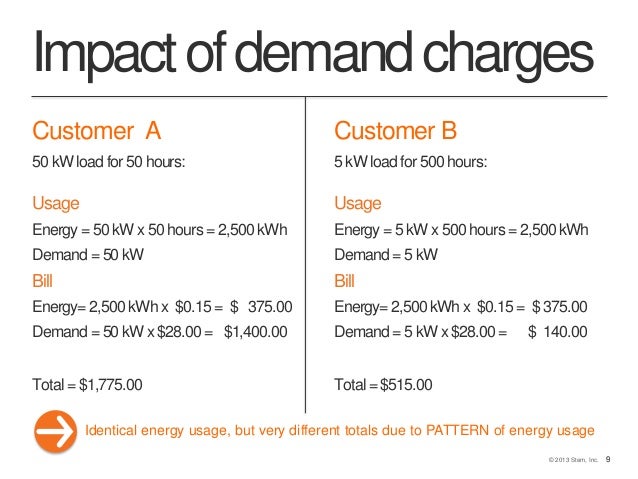SMAlset
Well-Known Member
I think the increase is fine and still reasonable compared to commercial electric costs.
For Supercharger locations for the Model 3 (and S & X), Tesla has to pay for the land (or lease), property taxes (if applicable), hardware, operation and maintenance, and the energy cost at retail rates. Solar and batteries may help offset some of the retail costs, but likely not enough to offset actual use. For example, using a Northern California (PG&E) rate schedule for a commercial customer for high electric use and a primary feed (A10 TOU):
Summer Peak = $0.21 / kWh
Summer Part-Peak = $0.16 / kWh
Summer Off-Peak = $0.13 / kWh
Winter Part-Peak = $0.14 / kWh
Winter Off-Peak = $0.12 / kWh
The above rates do not take in to account Peak Day Pricing, Demand Charges, and fixed costs. The "Average Total Rate" is $0.20 / kWh take those into account. Tesla charges $0.26 / kWh in California. Only a $0.06 / kWh markup to cover everything else.
From the local Supercharger agreements I've seen (city permit documents), Tesla doesn't own the land or lease it so no $ expenditures there or property tax involved. The land owner enters into an agreement with Tesla for a multi-year use of the land (and usually an extension period) with the understanding Tesla provides the equipment and maintenance on it, installation charges and covers the electricty charges. I believe the agreements I've seen have the parking lot still being maintained by the landowner with a notification provision to Tesla of when parking lot resurfacing etc will be needed.
The exception to this would be the limited, dedicated Supercharger oasis locations like Kettleman City and any Superchargers stations located at Tesla Service Center/Store locations where they own the land and buildings. Those however aren't by far as numerous as the thousands of Supercharger locations around the country located on others' property.
Last edited:



